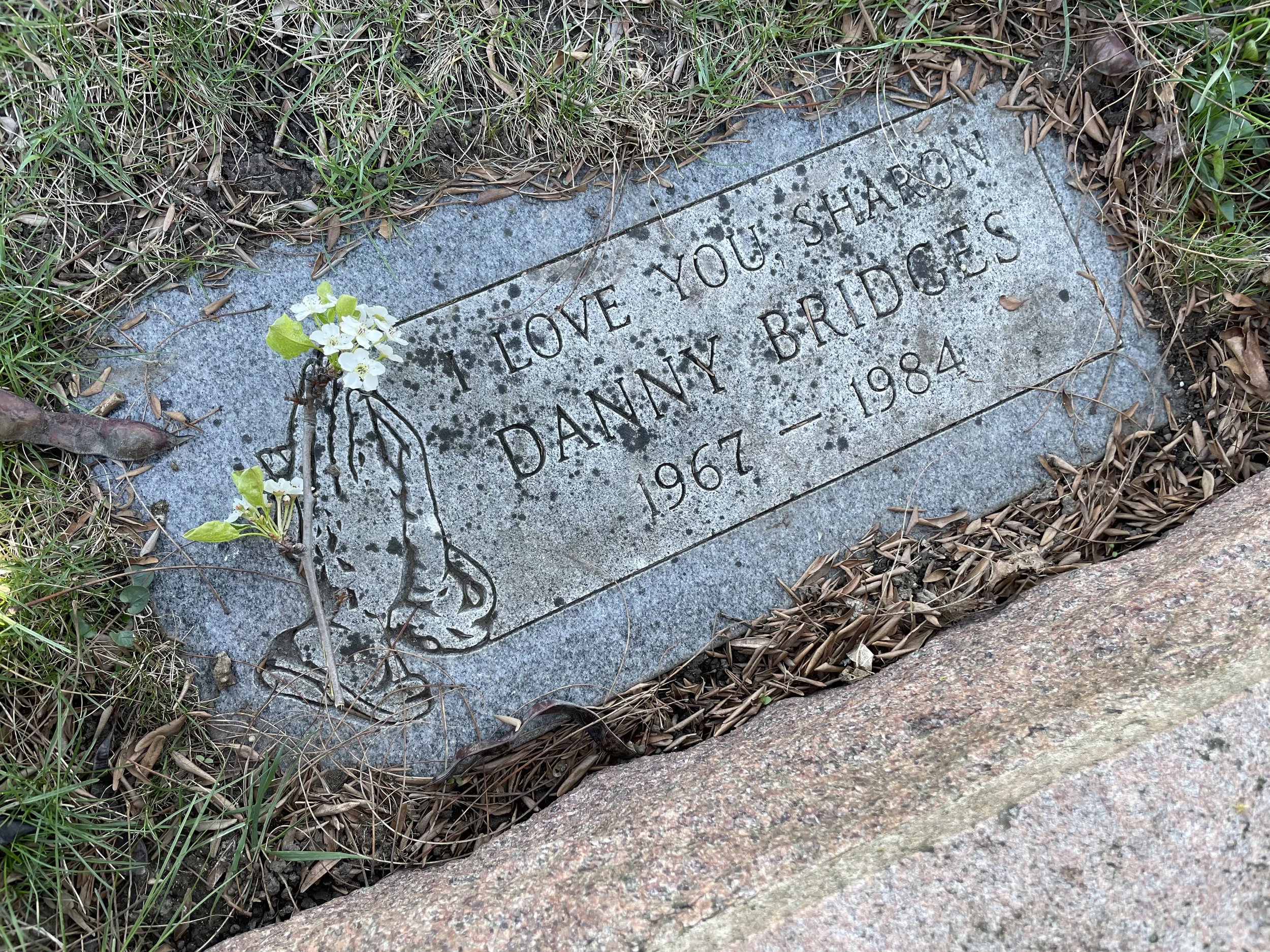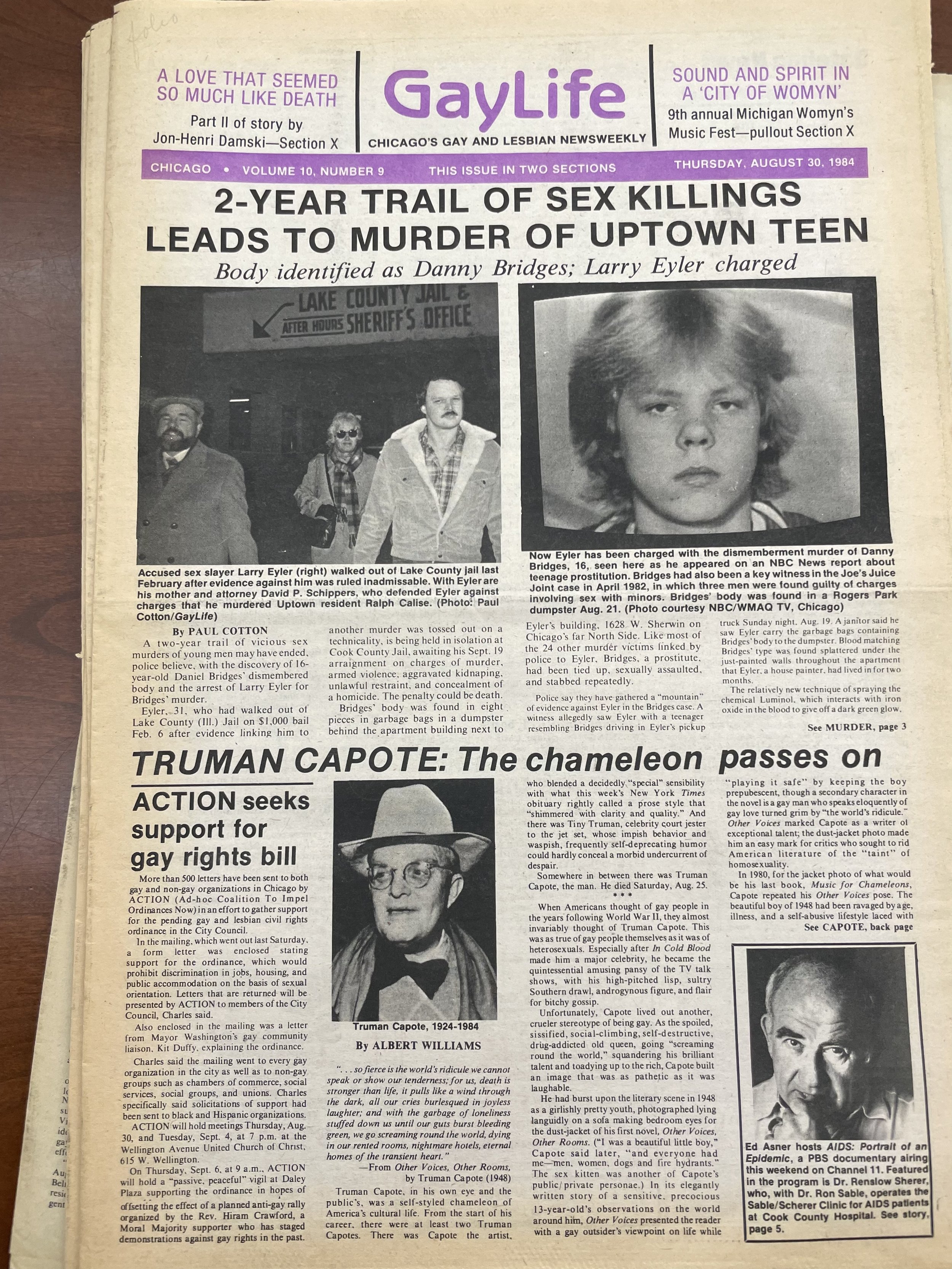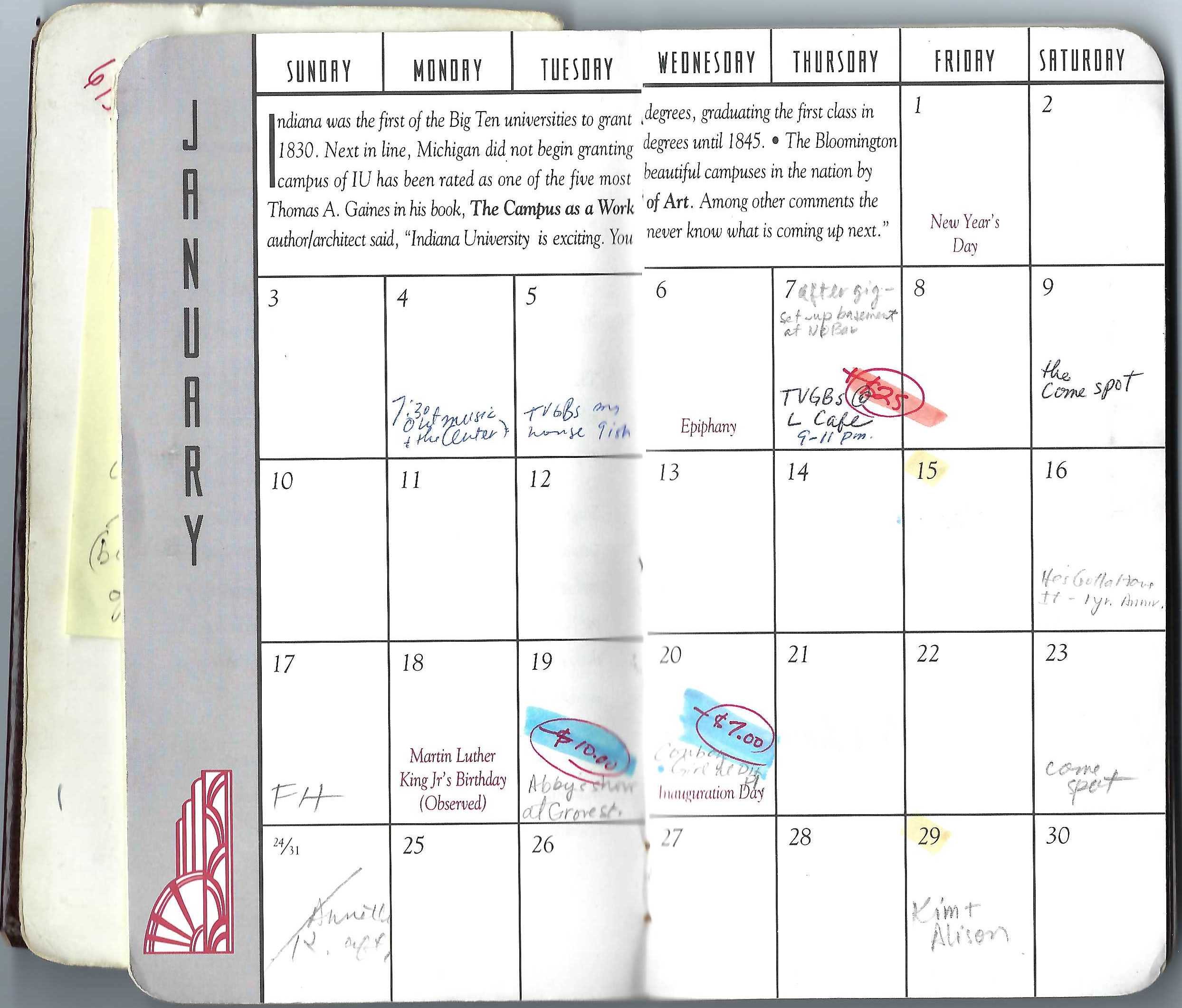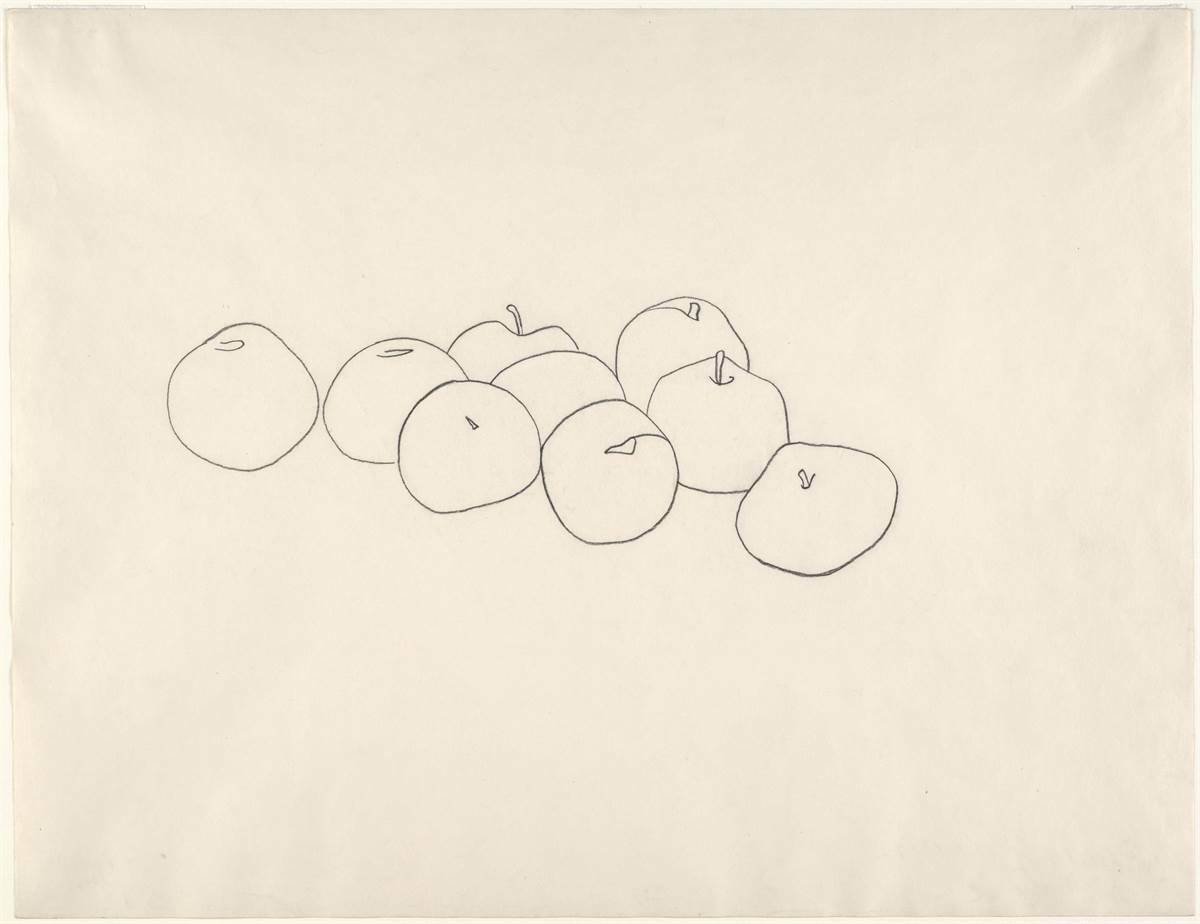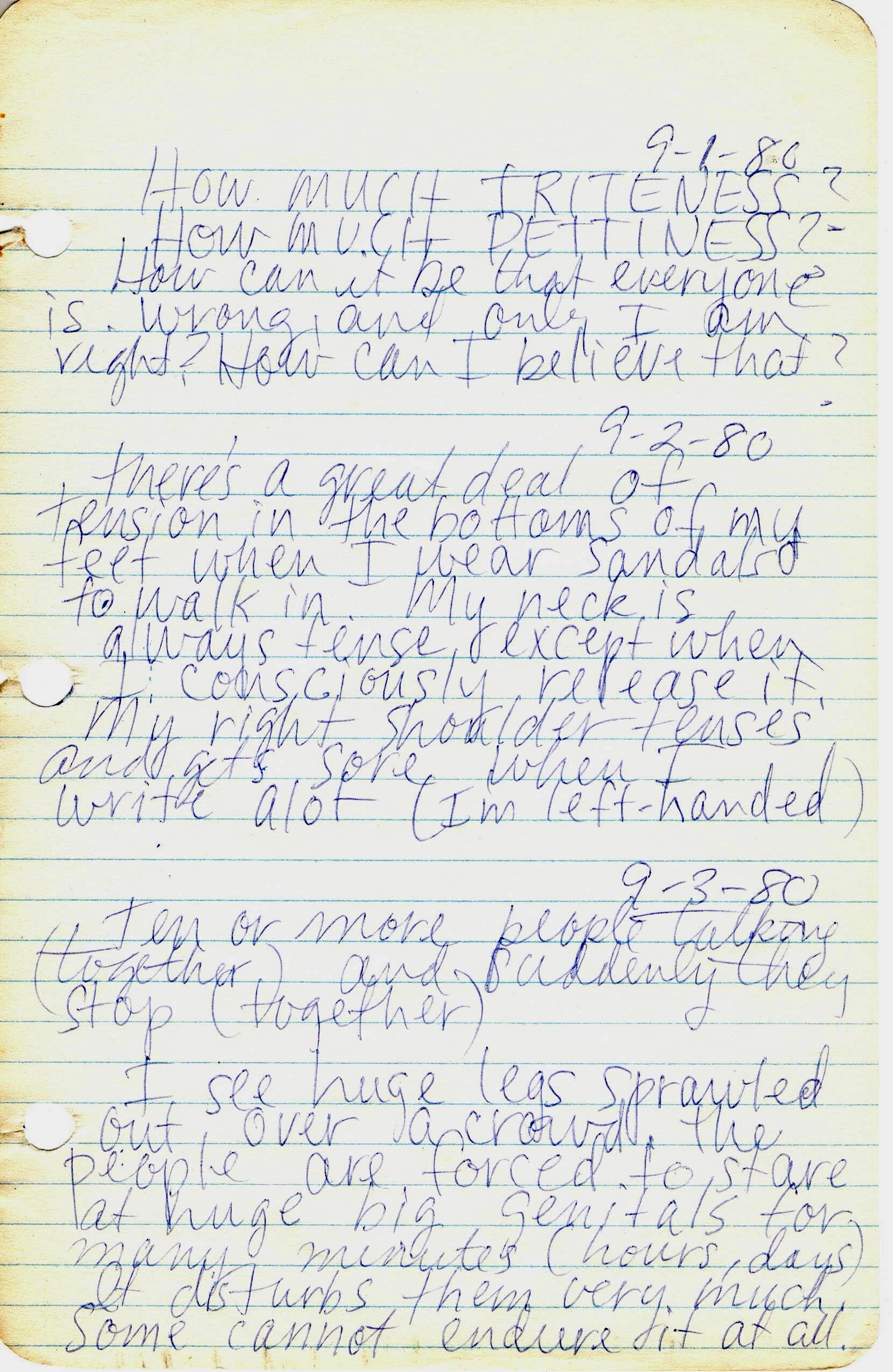The last person Larry Eyler killed was a 15-year-old boy named Danny Bridges. Most of Eyler’s victims were men in their 20s and 30s, but a few were younger. Bridges was quasi-homeless, street smart, charming by all accounts. At that time there was a bustling market in teen boy prostitutes in the Uptown neighborhood of Chicago, and that’s how he survived. The story is that Eyler picked him up there, but it doesn’t add up because Bridges knew Eyler and knew that he was dangerous, so why would he have gone with him?
(Which gives more weight to Eyler’s already credible assertion that he did not commit all 25 murders alone, but that’s another rabbit hole. If you’re curious about Eyler, the Wikipedia entry is pretty comprehensive as far as what’s known. To my mind, a great deal of really important stuff is not known and a lot of what is surmised is fishy. The source most heavily relied on by other writers is a book called Freed to Kill, by Gera-lind Kolarik, a Chicago journalist who followed the case closely. The book is downright weird, she’s sort of the hero of her story and refers to herself in the third person. She speculates a lot and with confidence. No index, no citations. It baffles me that hers is the only serious book about Eyler. There must be hundreds of books about John Wayne Gacy and Jeffrey Dahmer.)
Anyway, Danny Bridges evidently gave good interview because he’s featured in a multi-part feature on child abuse in the Chicago Tribune and he’s interviewed in an NBC news special on child abuse (which is where he mentions Eyler, just a few weeks before Eyler kills him). Media was obsessed with child abuse in the early 1980s; remember the hysterical panic about daycare centers? I have been able to find neither the Tribune series or the TV documentary, so far.
I thought I’d located the TV piece. Several sources said it was a made-for-TV documentary called “Silent Shame,” produced by NBC in 1984. A friend helping me with research tracked down what is apparently the only available recording, a VHS tape at the Indiana State University library in Terre Haute, Indiana. (The ISU library also has a fascinating connection to the Eyler murders, also having to do with the possibility of an accomplice, but I keep getting sidetracked!) So I added Terre Haute to this trip because it’s kind of on the way, and Eyler’s murders were mostly committed, or at any rate he dumped most of the bodies, along the stretch of IN-41 which runs from Terre Haute to Chicago, and I thought it would be cool to drive that route.
When I walked in the library, there was a long circulation desk with a huge neon sign over it: “ASK.” So I asked the kid sitting there where I might find the video. He sighed and looked up from his book, gave me a “no clue” look. I handed him a piece of paper with the call number, he looked at it for a few seconds, then said, “Second floor?” I asked him where, once I found it, I could view it. He said, “I don’t think you can watch a VHS tape here.” I said, “You don’t think? The tape is ‘library use only’ so if I can’t watch it here and I can’t check it out, why do you have it?” He gave me the no clue look again. I asked him if there was someone who might have a clearer idea of the situation, and he said “no.” HE SAID NO.
So I wandered around a bit. The place was absolutely deserted. A college library at 9:30 a.m. No reference desk that I could locate. Finally I snagged a woman who looked like maybe she worked there, showed her the piece of paper and asked where it would be, and she took me to the regular stacks, found the tape, and handed it to me. I asked where I could watch it. She said, “Hm. I don’t think any of the listening stations have VHS.” But she said, “Let’s ask,” and she headed for the desk with the no clue guy. I said, “He doesn’t know.” Just then another woman walked by and the first women snagged her and asked. There was one VHS player, downstairs all the way in the back corner.
Well, this was a 1984 VHS tape so if you know you know that VHS doesn’t really last that long. The tape was so badly degraded that it ran at about 1/2 speed with the audio completely garbled and mostly indecipherable. It was an hour long and I was just looking for a few minutes’ interview with Danny Bridges. It was a seriously creepy documentary, ostensibly news, but very salacious with lots of images of actual child pornography with no attempt to obscure the identity of the kids. Because it ran so slow I was there for 2 hours waiting for this interview, and then the show was over and no Danny Bridges. He wasn’t in it.
All the true crime nerds and serial killer freaks on Reddit are trying to find this Danny Bridges interview. I scoured a long thread and picked up that nobody has found it yet, but also that there’s some confusion between this NBC documentary “Silent Shame” and a news special called “NBC Reports: Child Abuse.” So the interview must be on the other one. I’ll keep looking. Hopefully it’s not VHS, and hopefully it’s not in Terre Haute.
Well, I sat down to write a short blog entry (I have two hours between things and I’m at a Starbucks) about my afternoon at the Chicago Historical Society library leafing through 5 years of GayLife, a Chicago free gay tabloid with ads and listings and classified and hard news and politics, looking for coverage of Eyler because I wanted to get the community’s take at the time. It’s a weekly, so hundreds of issues, most of them with nothing about Eyler, but I had to look at every page to find out. My fingers were black when I was done. It took forever and even longer because I was so captivated by this media world that was so familiar and that has mostly disappeared, these bar rags full of stories of gay-bashers attacking gay men, police attacking gay men, politicians attacking gay men, then AIDS attacking gay men, and page after page of explicit ads for bathhouses and “best ass” contests and drag queens, all the sex and joy and fun of our community right there alongside the constant danger of violence and hate. And 1980-84 is a pretty packed few years news-wise, otherwise, too.








